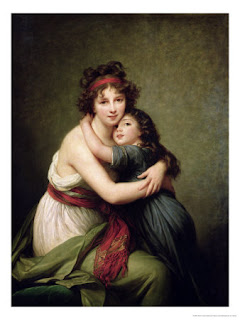The Poodle and the Immovable Rock
One of the things I lost in the divorce - along with my confidence, security, and faith in men - is this guy, Lord Byron. The poodle I found, trained, named, loved, and raised for eight years.
Someone once told me that all change involves loss. Unfortunately, some changes involve larger losses than others.
I am trying to be philosophical about the losses. Recently, I downloaded books on overcoming grief, the power of letting go, and learning how to practice small habits to achieve remarkable results. Brené Brown. Mel Robbins. James Clear. I have been hanging with the self-help homies, trying to master the subtle art of not giving a f*ck. Some books screamed at me to unleash my inner badass, scaring the self-pity out of me like a beer-swilling, tatted-up, hog-riding Hell's Angel pushing a patron off his bar stool. Call me crazy, but I don't want my life coach to have a trail of teardrops inked on his face. I am not a glutton for punishment. I need a softer, more cerebral approach to healing my broken heart.
Mel Robbins was softer, but her rah-rah-rah, 5-4-3-2-1 Just Do It! approach was fatiguing. I couldn't muster the pep to pick up my pom poms. I wish I could live my life as if it were a testosterone-fueled Nike advert, but some days it takes all my energy just to get out of my flannel sheep-print pajamas.
Then, I stumbled upon The Tao of Pooh by Benjamin Hoff. In The Tao of Pooh, Benjamin Hoff uses the beloved character of Winnie the Pooh to illustrate Taoist principles, including the lesson of the immovable rock. This concept teaches us to accept things that cannot be changed, much like Pooh's simple and peaceful way of navigating the world. Taoism suggests that resistance only causes frustration and turmoil, while acceptance leads to harmony and understanding. The rock, immovable and indifferent, symbolizes challenges beyond our control. By learning to flow around it, like water in a stream, we embrace the natural order of life, finding serenity and wisdom in letting go of unnecessary struggle. Pooh embodies this principle with his effortless adaptability, reminding us that sometimes, the best way forward is not to fight the rock but to accept it as part of the journey.
“Wu Wei doesn’t try. It doesn’t think about it. It just does it. And when it does, it doesn’t appear to do much of anything. But Things Get Done.”
What is getting done?
I miss the way Lord Byron would plop himself down on the bathroom floor, legs splayed out like a frog, and stare at me while I took a bubble bath. It didn't matter if I soaked for two minutes or two hours, my ADHD pup would watch me with unnerving and uncharacteristic focus.
I miss the way he would bound down the hallway and then dance excitedly when he realized I had returned from the pet store with a new stuffed snake, the way he violently shook the toy as if attacking a predator in the wild, his ridiculously floppy permed ears swinging around his head.
Then I think about the Tao of Pooh. About the lesson of the immovable rock and accepting things that cannot be changed. And I thank God my bounding, prancing, poetically named pup is thriving with my ex. In practicing simple gratitude, I am becoming the river, flowing over and around the rock that cannot be moved.
Gratitude, I’ve come to realize, isn’t about pretending everything’s perfect—it’s about finding the beauty in the small, everyday things, even when life feels like it’s falling apart. Like how I’ve learned to savor my quiet morning tea, the steam rising in a swirl as I sit with my thoughts, unbothered by anyone else’s agenda. Or the way I now notice the little things I used to overlook—the warmth of the sun on my skin, the sound of rain tapping softly on the window as I curl up on the couch. Lord Byron’s absence still hurts, but I’ve started to see that in his place, I’ve found a deeper appreciation for these quiet moments. Maybe that’s the real gift—learning to embrace what’s left, and finding peace in what is.
And maybe that’s the point of all of this—life keeps moving, like the river flowing around an immovable rock. It doesn’t ask for permission, and it doesn’t wait for us to be ready. All we can do is shift our perspective, find the path around the obstacles, and accept what we can’t change. Lord Byron may be gone, but the lessons I’ve picked up along the way, no matter how small, are what keep me going. And that’s something no one can take away.




Comments